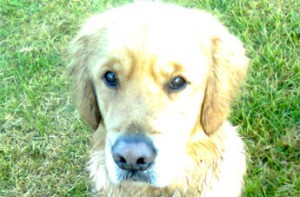Keeping an ideal dog body weight is important for dog happiness
 For humans proper weight is all about looking good and what clothes we can fit into. Humans suffer from such things as comfort food eating, poor metabolism, jobs that are inherently sedentary, lack of time for exercise, and a million other excuses.
For humans proper weight is all about looking good and what clothes we can fit into. Humans suffer from such things as comfort food eating, poor metabolism, jobs that are inherently sedentary, lack of time for exercise, and a million other excuses.
However, one of the major reason that your dog (and maybe you) are fat, is that you both don’t go out on a DAILY long dog walk, regardless of the weather.
Why dogs in the wild are happy
In the wild dogs run in packs and hunt food for survival, this usually takes considerable mental and physical effort. If you don’t run with the pack, you get left behind and you die. Dogs in a pack support each other and work in unison to make their kills. They also spend a lot of time playing which really burns up the kilo joules. While play is fun, it is also a necessary part of a dog’s development. They learn how to use their coordination to capture prey, and they also learn their position in the pack.
Compare a wild dog’s life to your dog at home.
Your dog waits by the door for your return. You come home from a busy day, commuting on a log jammed road or stinky commuter train, the last thing you may feel like doing is allowing your dog the vital act of socialising with other dogs.
As owner and pack leader you decide your dogs mental and physical state, you set boundaries, but above all you are responsible for their diet and exercise level. Fat dogs are rarely happy or jolly (as the myth would have you believe). They often get grumpy, run out of breathe when playing, and because you don’t take them very often, can eat food as a comfort just like we do.
Unhappy unhealthy fat dogs
Just like humans, Obesity leads to heart disease, skeletal problems, diabetes and low energy. But unlike humans who decide to lose weight for events such as a wedding, dogs can’t just decide to go to the gym or get a personal trainer. You are their personal trainer.
Did you know that besides being fat, a lot of their irregular moods, their food guarding, their boredom and anxieties come from you not exercising them enough, particular in the mornings?
And it’s a vicious circle too, as your dog gets heavier, and its lifespan decrease, it feels less like going out and playing with other dogs, which suits the lazy owner perfectly. Soon enough they will get arthritis early than usual, their leg joints will seize up and it will be painful to walk, making it a lot harder to lose weight.
IS your dog fat?
Most vets will have a chart on their wall showing what a healthy weight looks like. Mostly it’s a solid view of the dog from above showing that you should see some form of waistline on them. The dog’s ribs should be apparent but not pressing out of their sides. Underfed is just as much of a problem as over feeding.
While some people use the excuse that they have a slow metabolism, for some dogs it is partially true. In particular dogs that were bred to withstand extreme cold conditions either in swampy water or snow, were bred either with a thick double coat, or the propensity to put on a good layer of fat during the winter.
For anyone who has ever seen a fat Labrador retriever or cocker spaniel, this is not all their or your fault, but part of how they were selectively breed – the fat gives some insulation from cold. This just means that you are going to have to be doubly vigilant with the amount of food you feed them and how many low fat treats you give them each day.
Reduce dog weight slowly
Vets recommend for a reasonably healthy dog that you reduce their standard food intake by about 10% each day for two weeks. Check their new weight on a scale, and reduce it by another 10% for another two weeks if they need to continue to lose weight. Remember that you need to carefully monitor this, keep them on a healthy raw meat diet and keep up your daily off lead walks, where they are encouraged to run and play with other dogs.
At the dog park, do not stand around like statues having a good chat with the other owners. You both need the exercise so that means doing laps if you have to.
The bottom line is that you are responsible for their food, their exercise and ipso facto, their weight. While you may feel that you don’t have a lot of control over your own weight, you owe it to your dog, that is totally dependent on you, to keep them in their best physical and mental shape, by keeping their weight in the healthy zone. Good luck!